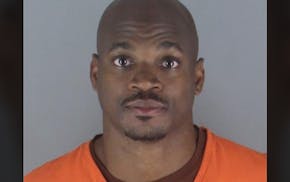A national parents' rights group has filed a federal complaint against Rochester Public Schools alleging that the district engaged in race-based discrimination in its efforts to boost minority representation among staff.
In the complaint, filed Wednesday with the U.S. Department of Education, Parents Defending Education says the district violated Title VI of the Civil Rights Act of 1964 and the Equal Protection Clause of the 14th Amendment by offering scholarship and networking opportunities only to people of color.
The complaint focuses on the district's Employees of Color Resource Group, which received $136,400 from the Minnesota Department of Education in 2023 to fund workshops and professional learning opportunities for teachers of color. The complaint also alleges discrimination in the district's "Grow Your Own" program. Launched in 2023, the initiative provides financial assistance to people of color in the community who want to pursue careers in education.
"PDE and its members oppose discrimination on the basis of race and political indoctrination in America's schools," the group wrote in the complaint. "Rochester Public Schools has affinity group programming for some teachers that is not open to all. The District allows only some teachers to participate in affinity group programming, mentoring, and scholarship opportunities and their participation is based on their race."
Reached Wednesday, spokesperson Mamisoa Knutson said the district had not yet received the complaint and could not comment on its specifics. However, she said the district believes its efforts to recruit staff from diverse backgrounds are not only lawful but also in line with best practices.
In one study on the long-term impacts of same-race teachers, the nonpartisan National Bureau of Economic Research found that Black students who have one Black teacher by third grade are 13% more likely to graduate from high school and 19% more likely to enroll in college than peers of the same race.
"Research has conclusively shown that when a student of color has a teacher of color, it has powerful benefits to their academic achievement and educational experience," Knutson said. "As a result, our strategic plan seeks to develop and recruit staff from diverse backgrounds and support them once they are employed in our district."
The district noted that while the programs exist to support teachers of color to continue in their professional development, they do not guarantee a position within the district or change hiring standards.
'Representation really does matter'
The district has for years struggled to recruit and retain teachers of color, even as the student body — and the community at large — have continued to become more diverse. The latest figures show that while students of color represent 47.2% of the district's enrollment, 11.75% of staff identify as a person of color.
That can mean there are times when there may be only one or two teachers of color in an entire school, said Malachi Johnson, a second-grade teacher at Overland Elementary School in Rochester.
Johnson, who is Black, co-leads the Employees of Color Resource Group for the district. He said the group offers a way for teachers from underrepresented backgrounds to connect with other educators in the district with shared experiences.
"The main thing is being a support system," Johnson said. "Just mentoring new teachers and offering sometimes a new teacher a mentor of color, just someone that they may be able to connect with a little bit better."
Johnson, who grew up without ever having a Black teacher, said the group's efforts are not intended to be exclusionary but to create an environment where people of color feel empowered to become educators.
"Seeing people who can represent you and show you what you can do, what you can be, is super important," Johnson said. "Representation really does matter."
Transgender policy also tested
The complaint from Parents Defending Education, a grassroots organization self-described as at the "forefront of the fight against indoctrination in the classroom," comes at a precarious time for districts that promote diversity, equity and inclusion initiatives.
During his campaign, President-elect Donald Trump repeatedly threatened to take away funding from schools that offer programs not aligning with his views on DEI or transgender rights.
Emboldened by a conservative majority in the U.S. Supreme Court, national right-leaning groups have also been targeting school districts that have progressive policies on hot-button cultural issues.
In July, the Rochester district was threatened with a lawsuit over transgender guidelines that allow students to request to be addressed by their preferred names and pronouns. Under the policy, teachers are not required to share information about a minor's gender identity to parents, unless the parents ask. Teachers may also notify parents about a student's gender identity if they have concerns about their well-being.
The two firms involved, Wisconsin Institute for Law and Liberty and the Upper Midwest Law Center, said the guidelines undermine "parents' right to make decisions with respect to their own minor children."
No lawsuit has been filed. Rochester Superintendent Kent Pekel has defended the district's policies on transgender students and recruitment of teachers of color, saying they are "entirely within the law."
"Anybody can sue for anything," Pekel said Thursday. "But we are confident that we are operating common-sense programs that I know fit within the boundaries of the law, and that I think most people would strongly support if they had the chance to learn about what we're doing."

State Patrol: Ex-Viking Adrian Peterson arrested in Twin Cities for driving drunk with four passengers in his car
FBI arrests a Milwaukee judge accused of helping a man evade immigration authorities

U holds 'Take Back the Night' rally as part of Sexual Assault Awareness Month

Trump administration reverses course, will reinstate international student visas

